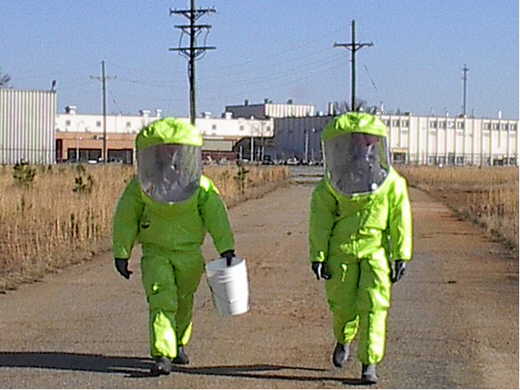Today’s Senate and House hearings regarding the recent events surrounding the globe-trotting travels of Andrew Speaker, the now world-famous patient with multi-drug resistant tuberculosis highlights the fact that quarantine does not work. The problem is that the national pandemic flu response plan is based on a form of quarantine known as social isolation and social distancing.
In the words of Brian Flynn, former Assistant Surgeon General of the United States,
“In the entire history of the world, quarantine has never worked.”
Andrew Speaker’s travels and the attempts of the Center for Disease Control and the Custom and Immigration Service of the United States to quarantine Mr. Speaker demonstrates the comedy of errors seen when quarantine is attempted. During the SARS epidemic of 2004, quarantine was attempted in Hong Kong and resulted in a mass migration of potentially exposed individuals out of Hong Kong. Despite a quarantine, SARS ultimately spread to Toronto.
Andrew Speaker traveled from the United States despite the fact that he was already aware that he suffered from tuberculosis and was not to travel anywhere. Despite the attempts to restrict his movement, he traveled to Greece where he was married. From Greece, he traveled to Italy where the CDC finally made contact with him informing him not to travel by commercial aircraft. There is significant debate as to whether the CDC declined to transport him on a CDC aircraft for lack of the ability to isolate or lack of funding for the transport of a civilian.
The CDC website is replete with photographs of Level A individual patient isolation units used for the transportation of patients with Ebola virus, making the CDC’s claim that there is no ability to fully isolate a patient aboard one of their aircraft highly unlikely. On the other hand, there was no federal tasking number, no declared national disaster, and no federal mandate or even jurisdiction in Italy upon which to base this use of a federally funded aircraft for the transportation of a civilian, even though a U.S. citizen, who had already ignored travel restrictions. Since Mr. Speaker had chosen to transport himself to Europe, he would be responsible for the cost of returning to the United States.
Upon hearing the over $100,000.00 bill for the safe repatriation of himself and his wife to the United States without risk to an aircrew or other citizens, Mr. Speaker chose to elude quarantine attempts in Italy before they could even be instituted and to travel to Prague, Chezkslovakia. From Prague, he boarded a commercial aircraft exposing potentially hundreds of individuals as he flew to Canada where he then rented a vehicle and drove to New York. The Customs and Immigration Service then failed yet again to quarantine Mr. Speaker as he crossed the border despite the fact that his passport now was electronically flagged for detention and quarantine.
This saga of events will invariably be blamed upon individual organizations rather than on the fact that quarantine simply does not work. Politicians and public health officials refuse to give up a system of public health mythology that dates back to the second black plague. The word quarantine is drawn from the Venetian word for forty because, in the middle ages, ships were forced to sit at anchor in the bay outside of the dock in Venice for forty days prior to being allowed to disembark their passengers, crew, or cargo.
Despite over five centuries of failure, half of a millennium, quarantine is still the first word uttered by public health officials and our elected representatives when facing epidemic, pandemic, or even isolated outbreaks of highly contagious or severe illness.
Andrew Speaker is now in medical isolation, a procedure utilized when a patient with a known disease is separated from individuals without that disease. Mr. Speaker’s life will be saved and those around him protected not by a quarantine but by an everyday medical procedure, isolation.
Unfortunately, when the next pandemic strikes in the coming years, the current plan is for a modernized version of quarantine which will be no more effective than we have seen in the past week, the past year, the past century, or the past millennium.










